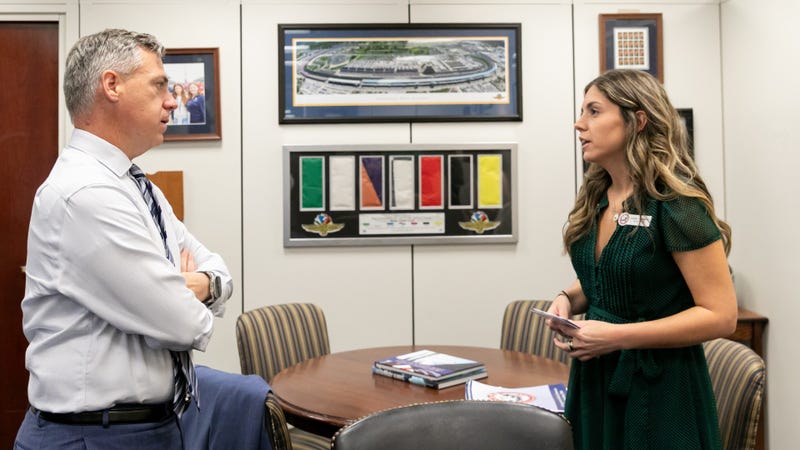
More than 150 surviving military family members, aged six to 75, took to Capitol Hill last week for the 3rd Annual TAPS Gold Star Families Advocacy Week.
From Sept. 15-18, families from across the country joined staff from Tragedy Assistance Program for Survivors (TAPS) to advocate for updates and policy improvements to military and veteran survivor programs before nearly 400 Members of Congress.
The 2025 TAPS Advocacy Week was supported by Prudential Financial, which continues to be critical to TAPS’ efforts to improve policy for surviving family members.
A policy priority of Advocacy Week was the Love Lives on Act of 2025, which would allow widowed survivors to retain the Survivor Benefit Plan (SBP) and Dependency and Indemnity Compensation (DIC) – both critical financial benefits – upon remarriage at any age.
Under current law, surviving spouses are required to surrender these benefits if they remarry before reaching the age of 55. TAPS believes that surviving spouses of fallen service members should not have to choose between another chance at love and a stable home life for their children, and financial security.
“Life is better shared. That didn’t happen for me because I was petrified,” said Surviving Spouse Michelle Fitz Henry, discussing the Love Lives On Act. Fitz Henry lost her husband during a Navy training accident after 21 years of service.
If an active-duty service member dies by suicide, it is treated as a “line of duty” death, and their eligible dependents are awarded various Department of Defense-related benefits. The Service-Connected Suicide Compensation Act would extend similar benefits to veteran families whose service member died by suicide after service separation, providing a consistent acknowledgment of service-connection that does not end with active duty.
“You’re already traumatized by suicide loss. Now you have to prove that it was service-related to prove that his service actually mattered,” said Surviving Spouse Melissa Wilson, advocating for the Service-Connected Suicide Compensation Act.
“This bill is life or death,” said Gold Star Daughter Hana Mackey, while advocating for the CHAMPVA Children’s Care Protection Act, which would extend VA health care coverage for children and survivors of disabled veterans to the age of 26 – the same coverage required under private-sector insurance plans. Currently, surviving children of military families only have
healthcare coverage until age 23, when many of them may continue to need support.
While advocating for the Health Care Fairness for Military Families Act, which would fix inequities in critical military physical and mental health care coverage for families with young adults, Surviving Spouse Erin Blaise commented, “It’s insurmountable as a widow to raise children. I had to leave work. I don’t have another income. I want my children to come first. We
need health coverage.”
“Advocating is an open love letter to my late husband, Captain Matthew Tomkiewicz,” said Surviving Spouse Lauren Tomkiewicz, on why she advocates with TAPS. “It’s been an incredible way to channel my grief in both a positive and meaningful way. Love will always live on.”
For more details on TAPS’ policy priorities, visit here.
